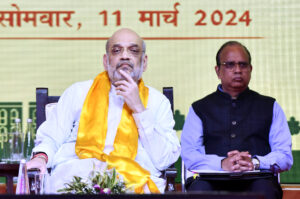Covid-19 pandemic taking a toll on doctors’ mental health: Survey
[ad_1]
Covid-19 pandemic takes a toll on the mental health of medical professionals, a survey has found. A survey done by British Medical Association revealed that while several doctors already suffered from depression, anxiety, stress, burnout, emotional distress or another mental health condition, these problems got worse during the Covid-19 pandemic.
The survey found that while 41 cent of doctors suffer mental health-related issues, at least 29 per cent felt the problem got worse due to the pandemic.
In this survey, BMA informs, 7,821 doctors across the UK answered the question like: “During this pandemic, do you consider that you are currently suffering from any of depression, anxiety, stress, burnout, emotional distress or other mental health condition relating to or made worse by your work?”.
The association received 2,424 free text responses when asking doctors about the impact Covid-19 was having on their mental health and wellbeing.
As per the association, there has been 40 per cent increase in its own wellbeing support services over the last three months, including those who are feeling anxious about going to work to face unknown situations.
Responding to the survey a GP from West Midlands said, “I don’t think I realised how stressful it was directly until I wasn’t sleeping and bursting into tears in the car and when saying goodbye to my kids on the way to work.”
Considering Black and Asians Minority Ethnic communities are more affected by the disease with Indians twice as likely to be infected by the virus, some have had to make very difficult choices. Deaths in the hospital compounded by the fear of death at home complicate the problem further.
One such doctor from North East revealed that he often gets tearful thinking about patients who died and the fear of his family contracting it, “I live with continuous baseline anxiety, which I realise is due to fear and sadness that someone among my past and present colleagues and medic friends will die of Covid-19. Every day feels heavy, regardless of the actual patient workload; all daily activities take more effort and on some days off from work I cannot muster the motivation to do anything but lie down. The constant need to keep up to date with Covid medical updates on all media is causing burnout. I have never ‘studied’ this much, day and night, even with three masters-level qualifications.”
Caring for patients in intensive care has been excruciating for doctors. Usually, patients here are unconscious, on a catheter that needs regular changing and if they breathe their last, often the one holding their hands through this difficult period is a doctor or a nurse. The family members are not allowed in the Covid-19 ward or at the funeral. Often junior doctors and nurses deal with such situations.
One such junior doctor from London wrote, “Seeing people dying, receiving and breaking bad news, no socialising outside work to refresh and recharge all these factors increased the level of anxiety and depression.”
Another junior doctor in London said, “The most difficult part of the day is when we update families and relatives about the progress and clinical situation of their beloved ones. Unfortunately, good news during this pandemic has been rare. Only a few success stories, but most of the time we had to break the bad news to relatives who cannot be physically present during those last moments, it is hard.”
In case of a death where the family is not allowed even at the funeral, a GP is left with the task of supporting the bereaved family. A GP from West Midlands said, “I find myself completely at sea speaking to bereaved relatives. This kind of bereavement is not like any other I have had to deal with in my more than 30 years as a doctor.”
Covid-19 has presented with situations that have been unforeseen and unusual and thus, the support to the health staff needs to be in consistent with that.
Calling for more support for doctors suffering from poor mental health and wellbeing the British Medical Association recommended: “a long-term strategy that protects and maintains the physical, mental and emotional wellbeing of the workforce as a top priority for the NHS, lasting beyond any interim Covid-19 support”.
Referring to the “outpouring of heart-breaking accounts” of the doctors during the survey, Dr David Wrigley, BMA council deputy chair and wellbeing lead said, “Throughout this pandemic doctors and healthcare workers have been painted as heroes and the efforts that they have gone to in caring for their patients is certainly heroic. But they are not superhuman. They need to feel that they are able to seek help and that help must be readily available.”
He further adds, “doctors are understandably anxious about their own health and the risks posed to their loved ones. This is exacerbated over concerns that a second peak may be just around the corner.”
Now that the lockdown is easing out in the United Kingdom and one hopes a second spike does not arrive the need to support the doctors becomes urgent and not less, “The effects of Covid-19 will be felt for a long time to come, both in terms of the impact on the NHS, and the long-term mental wellbeing of our healthcare staff. Even as the number of Covid-19 cases falls, doctors and their colleagues will continue to feel the pressure as the health service faces the anticipated surge in demand for non-Covid-related treatments. Therefore, there must be proper support available to all NHS staff not only during the Covid-19 pandemic but beyond. Supporting the wellbeing of the health workforce must be a top priority in the long-term,” says Dr Wringley.
[ad_2]
Source link






